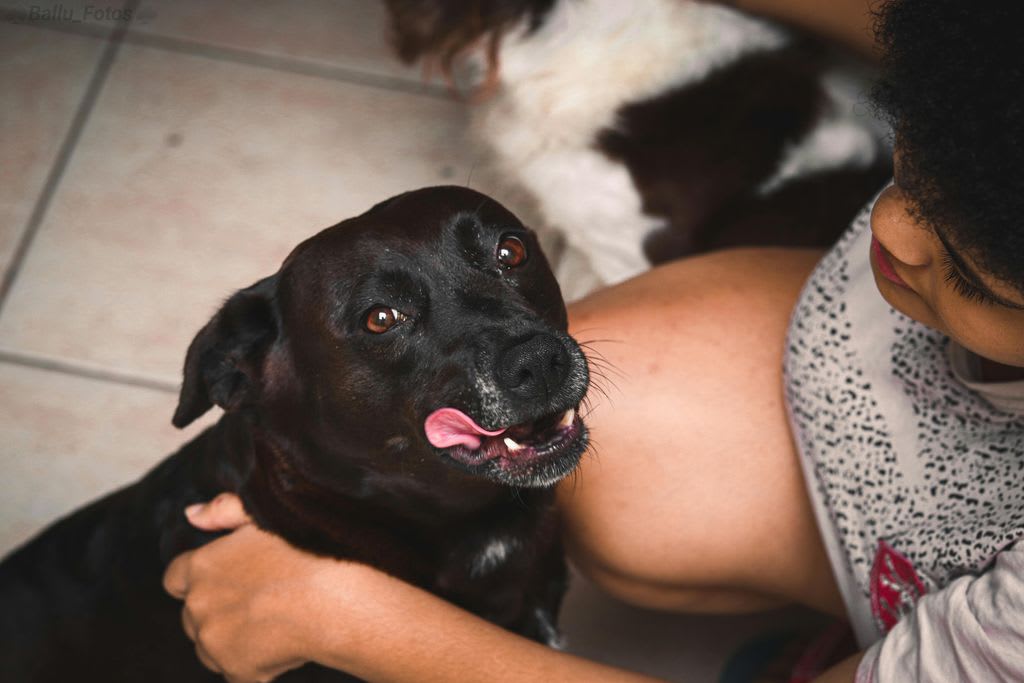Keeping Your Pet's Calm This Summer

Posted On July 1st, 2025
The 4th of July is right around the corner. While the festivities and fireworks may be fun for us, this holiday celebration can be frightening for our pets, which is why it’s a good time to talk about anxious pets — what triggers their stress, and solutions.
Anxiety Is Very Real
One in 3 dogs and cats show signs of anxiousness during their lifetime. Different pets have different triggers. What helps is identifying if they suffer from anxiousness and what triggers it.
Loud Noise = A Complete No-No
The most common triggers are loud noises. Have you ever noticed your pet hides under the bed, pants, or shakes while there’s a thunderstorm? Thunderstorms are a common source of stress in dogs and cats. Some pets may even sense a storm coming and begin pacing and panting before it arrives.
You Enjoy Fireworks, But Does Your Fur Baby Enjoy Them, Too?
4th of July anxiety in pets is real! The 4th of July, the day more dogs go missing than any other, is quite possibly the most stressful time of year for our furry family members. Because their senses are so acute, bright lights and noise cause a great deal of worry and anxiousness in our pets. It causes physical disorientation and a flight response, and many animals try to flee in panic.
Lots of “Alone” Time (They Can’t Just Snooze All Day Long)
Then there’s separation anxiety, caused by leaving your pets alone when you go out. Separation anxiety in dogs is very common. If you see your pets causing havoc while you’re away, it’s not because they’re misbehaving. They’re just anxious because you, their pack leader, was out of sight.
Anxious While Traveling?
Planning to go road-tripping to the lakeside to enjoy the festivities? We hate to break it to you, but your fur baby may not approve of the idea if they get nervous when traveling. Stress from travel involves feeling anxious when riding in cars, or even planes. Often small doggos tend to feel nauseous in cars. It’s because they know they’re moving, but they can’t see it. Letting them see out the window can help, or keeping them occupied with their favorite toys or music cou ld help save the day.
Agitation Around Strangers
Expecting a huge crowd for your 4th of July weekend party? The additional traffic and unfamiliar faces can cause major stress for our pets. Some planning beforehand can help. Make sure to confine your fur baby to a safe space away from all the noise before you start moving the furniture and doing the preps. Keeping some treats handy and just being there to comfort them is good enough.
9 Gentle Ways to Soothe Your Pet’s Anxiety This 4th of July
Here are supportive, vet-informed tips to help your pet stay calm this holiday:
1. Try Natural Calming Supplements
Try blends with calming ingredients or large chews to help ease anxiety.
2. Give Them a Job (Or a Distraction)
A favorite chew toy, puzzle feeder, or long-lasting treat can give your pet something to focus on — and help take their mind off the chaos outside.
3. Desensitize with Firework Sounds
In the weeks leading up to the 4th, try playing low-volume fireworks sounds while rewarding your pet for staying calm. Gradually increase the volume over time — this training can really help build confidence.
4. Swaddle or Create a Safe Den
Many pets feel more secure when they’re wrapped up or enclosed. A tight-fitting shirt or a cozy crate with soft blankets can create a calming, cave-like environment.
5. Go for a Pre-Firework Walk
A tired pet is a calmer pet. A long walk or play session before the fireworks start can help burn off nervous energy.
6. Don’t Punish the Panic
If your pet hides, shakes, or whines — that’s fear, not disobedience. Be patient and comforting. Never punish anxiety behaviors.
7. Stay Calm Yourself

8. Prep a Quiet, Guest-Free Zone
If you’re hosting, set up a calm, quiet room for your pet — with their bed, water, and a few comfort items. Keep the crowd and noise out of their safe zone.
9. Talk to Your Vet if Anxiety Persists
For pets with severe anxiety, a consultation with a veterinarian or pet behaviorist may be needed. You’re not failing — you’re doing what’s best for your pet.
As you plan your 4th of July celebrations, take a little time to prepare for your pet’s peace of mind, too. Because when they feel safe, everyone can enjoy the holiday together.
You’ve got this — and we’re here to help every step of the way.
Explore calming solutions for anxiety and create a calmer, happier holiday for your furry family member.
Contact Me
Contact Us
Have a question about our services? We're here to help! Fill out the form below and one of our friendly team members will be in touch shortly.

